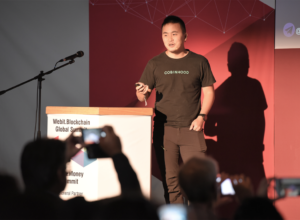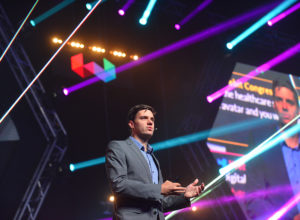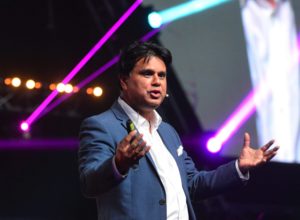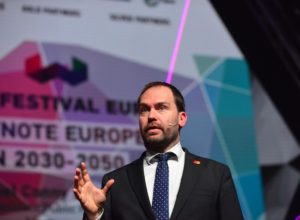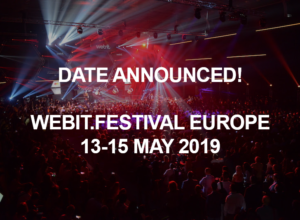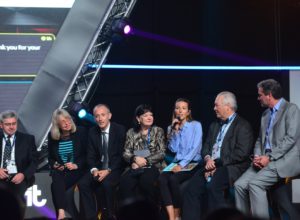Adventure Capital: The case for innovation economy in Emerging Markets
United States vs Emerging markets
What's happening in US in terms of tech and innovation investing?
The US market has been on a 8-year up-cycle. In 2017, 82,9 M USD were invested and for historical context that is the most amount of Venture invested since the year 2000. But then again by looking at the first quarter of 2018 (28.2B USD) if we do a simple annualization - we may be on a course to exceed a 100B USD venture invested in US this year and perhaps we may eclipse the 105B USD from 2000.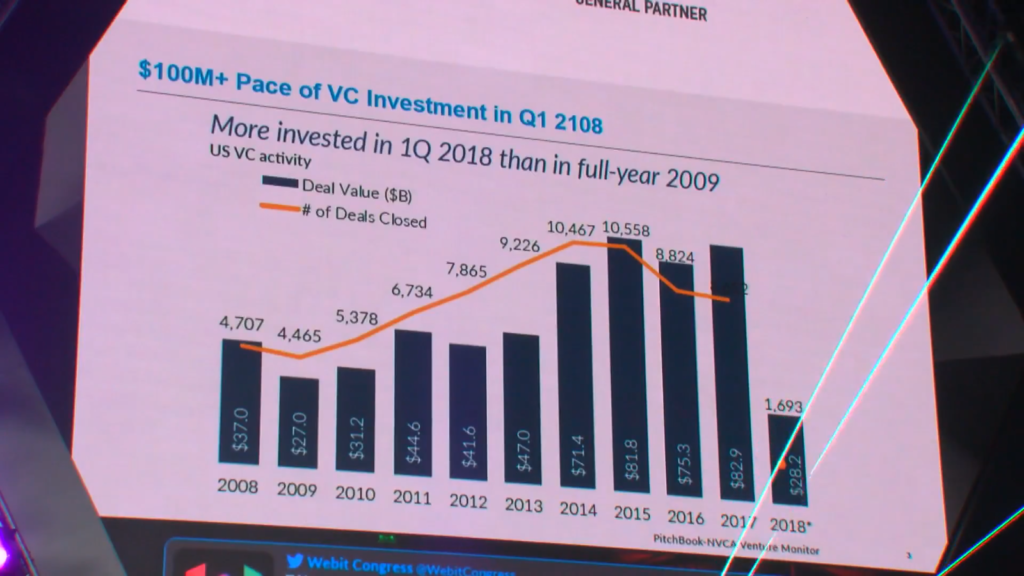
If we look at the global set of unicorns - more than half of them reside outside of the US while just 5 years ago nearly 75% of all global venture was invested in Silicon Valley."The US economy is doing well, the stock markets are at all time high, unemployment is at historical low, why are then our investors and entrepreneurs increasingly looking outside the US in emerging markets in terms of creating valuable technology companies?"
Global innovation wave is growing.
➡️ 49% of Global unicorns are outside of US (CB insights) ➡️ 57% of new unicorns are outside US ➡️ China has 55 unicorns, Idia - 9 ➡️ 40% of YC is international ➡️ Less than 45% of global VC is in Silicon Valley Last year, venture commitments in China exceeded $50B for the first time, funded largely by domestic RMB investors. Venture fundraising in china matched US fundraising in 2016, which was the highest total in 15 years. By some measures China is already the largest Venture market in the world. Certainly China is the second largest economy in the world. India is also a good example of "tropicalization" meaning that entrepreneurs and investors can choose business models from developed markets apply innovation to take those models locally to their home market. Flipkart is a good example of that. The company raised billions of dollars and have been competing vigorously with Amazon in India for the e-commerce market.It seems like in many of the emerging markets the banking landscape is very similar - usually dominated by a handful of large powerful banks that act in a monopolistic sort of manner. That means they don't take a lot of risk, they don't treat their customers very well and as a result it gives the entrepreneurs the opportunity to really disrupt, innovate."As I travel around the emerging markets, one of the sectors that really pops out is Fintech."
Secular trends that drive the acceleration of innovation in emerging markets:
➡️ The amount of capital that you need to launch a business today has drastically reduced from a few years ago. ➡️ Entrepreneurs can leverage cloud based technologies using lean startup models, they can get to Proof of concept much quicker than before with much less money. ➡️ Entrepreneurs don't need to go to the large money centers like the Silicon Valley ➡️ Increasing availability for best practices - Endeavor, Techstarts, YC ➡️ Proactive government funding ➡️ More funding available from US and other developed markets ➡️ Rise of the rest - you'd no longer have to be at one of the traditional US tech hubs to launch a relevant high growth technology business.Missed the 2018 edition of Webit.Festival Europe? Don’t miss the 2019! Get your super early bird 2in1 tickets – 2 for the price of 1 here!
Digital identity and the future of democracy
Ralph was the moderator of the panel named Digital Identity and the Future of democracy where several main point were tackled from different perspectives:
On the one hand, the Bulgarian Minister of the EU Presidency, Ms Lilyana Pavlova and the former Belgium Prime Minister, now Secretary-General of IDEA expressed strong points re: challenges and opportunities for the democracy, and on the other hand, Ms Monique Morrow, former CTO of Cisco and now founder and CEO of The Humanized Internet along with Mr Yonov Agah, a Deputy Director-General of the WTO (World Trade Organization) and responsible for the Doha Round as Chief Negotiator saw the citizens as driving force for change in democracy.When we’re looking at the question of democracy in the digital age, it’s essential for the politicians to ask themselves and to be asked:
Minister Pavlova sees the ever changing environment as an opportunity, rather than an threat. She says the government is closer to its citizens - which for both sides is an advantage. From her point of view, one of the biggest challenges of the Presidency of the Council was working on digital transformation, digital skills and digital Europe as a follow up from the Estonian Presidency, the leader in digital transformation in Europe. Minister Pavlova admits that while the first steps are undertaken, there is still lot to be done when it comes to e-privacy, free flow of data, data security, е-presidency and substantial framework. Mr Leterme’s experience shows that representative democracy is one of the challenges nowadays - where decision making has completely changed. Contrary to the verticality of the representative democracy, i.e. citizens giving confidence and trust to policy makers, today we have horizontality; Another major difference is the informal interaction between citizens and politicians. While Mr Leterme agrees there are many risks, there are much more opportunities and advantages.Ho do we run a government when each citizen is digitalized?
The importance of data and consumers protection came up in the conversation - the biggest companies in the world control our data and when we put trust, they mustn’t betray us, unlike Facebook which was supposed to take care of our privacy and it publicly failed.Politicians are still using 19th century ideologies, 20th century tools and we still haven’t found the 21st century ways with our outdated decision-making, like the ones in a political party with all the congresses and membership conditions. What was 15-20 years ago, when I was starting my political career is long gone, as president Macron is doing now, but generally in politics there is some delay.
The whole question is how can we turn the new realities into positive change impacting new elements.
The GDPR may have frustrated lots of companies - some bigger, some smaller, but it’s a step towards establishing a solid ground for further regulations.It’s important for the governments and authorities to act, instead, we leave it too much to the initiative of the private companies to self regulate.
All of the centralized systems we’ve trusted have been hacked. What is the real approach to tackled these issues? There’s a serious mismatch between the speedy developed world and the tools representative democracy has been using to make decisions.Democracy 3.0. Citizens are coming much closer together and want to have participatory interaction. They don’t want to see opacity.
We need to understand the whole agency of technology before us from a government and from a citizen perspective. We need to think what democratization looks like in the 21st century that it all happens very fast, in terms of a minute.
Change attitudes, change lives. Nigel Ackland @Webit.Festival Europe 2018
Is it life-changing?
No, it isn’t. But it’s changing the perspective of others and often our injuries making them uncomfortable. As Mr Ackland puts his arm on stage and shows it, he says:What I’m seeing is smiling faces. It doesn’t get much more positive than that.
Let’s look at the specifics:
- It has a vacuum plug, to ensure maximum stability
- plus a charging point, just like a phone
- It has a wrist band for rotation, without using your other arm
- You can still feel some harsh movements, but it has no sensitivity
- The fingertips glow in the dark so it’s useful because the arm itself is black
The usual injuries with the loss of a limb happen to manual workers, mostly men, who have manual salaries and have manual health insurance that doesn’t cover such prosthetics. This arm, although the elder version, costs about £25 000 in the UK, $98 000 in the USA. It’s expensive.If you have something that’s not accessible and affordable to many people, why bother?
In Europe, about 4 billion Euros is spent on such arms, but not quite the same as this. To all the political leaders out there: it’s time for you to innovate, change your attitudes, re-write your policies and focus on better quality of life.If you change attitudes, you can change lives. Perhaps it’s about time we did start to innovate and change attitudes.
Will it happen? Nobody knows. But somewhere out there people are innovating.
Before being given the arm, Mr Ackland was asked to picture himself in the next year or two and he couldn’t. He had to think hard to come up with the image of a country house, field and a very peaceful life. Exactly one year later, he stood up before an audience talking about his experience with the new arm. It was June 2013.Every single one of you, whether knowing or not, just by coming here and listening, is part of the positive change for me.Today I’m here at Webit, one of the largest innovation, most provoking summit in the whole of Europe and it’s got to be positive.
Missed the 2018 edition of Webit.Festival Europe? Don’t miss the 2019! Get your super early bird 2in1 tickets – 2 for the price of 1 here!
The DApps Era is coming – the future of Blockchain adoption
The DApps Era is coming
Back in 1991, many of you remember when the websites obsession was huge - the largest companies began with it. The transition towards search engines like Google and Yahoo was more or less smooth until they became viral. The appearance of sharing platforms appeared naturally - youtube, myspace, blogspots, etc. Some of the platforms disrupted and stayed, others disappeared and many, many more appeared. A couple of years ago Messenger,whatsapp and instagram, to name a few - everybody talked about these and while they’re widely used today, the hype over them disappeared. In 2017 - 2018 the most talked about technology advancements are the crypto-blockchain platforms. We are, very naturally, transitioning towards DApps era - or post apps era, role of apps is increasing and becoming more important rather than steady. All of this transition may seem ‘natural’, however, appearance and longevity process is way more difficult. Geoffrey A. Moore’s “Crossing the Chasm” theory applies to basically any sphere. Hsuan explained the technology adoption cycle in the following way: The innovators are about 2,5 % of all the population. The heart of all high tech startups is a product that spawned from a small group of passionate scientists.The early adopters take up about 13,5 %.
This is the ‘chasm’ to which companies pay little attention to once a company is over hyped by the success of market entry. This is the worst place to be, characterized by low scalability, high transaction latency and high transaction fees. The early (34%) and late (34%) majority are the largest part and the most secure phases in a company's development. There are, however, cases when the company fails - the ‘laggards’ as Hsuan calls them - are about 16% of all. Blockchain adoption by companies will be as difficult process as the transition from appearance of apps to their everyday viral usage. It will happen, however.Missed the 2018 edition of Webit.Festival Europe? Don’t miss the 2019! Get your super early bird 2in1 tickets – 2 for the price of 1 here!
Will the blockchain industry change digital advertising?
The crypto market exploded over the last three years. A lot of industries started looking at blockchain as a technology, as to whether it can solve some of their biggest challenges.
Let's look at blockchain:
Blockchain as a technology is still at its infancy. We're still at the hype cycle and blockchain is sitting right next to autonomous vehicles which I don't see happening in the next two or three years and Event-triggered marketing. So as a technology, blockchain might grow into something big like the internet or even bigger, but it might also fade away into some narrow use cases.How can Blockchain improve the Digital Media and advertising landscape?
There are some use cases which are rather obvious: * Fraud detection and prevention * User Identity * Buying and selling inventory, etcCentralization vs. Decentralization
Trust a third party or to use a decentralized approach?Decentralization PROs
* Durability, reliability and longevity - Due to the decentralized networks, blockchain does not have a central point of failure and is better able to withstand malicious attacks. * Process integrity - Users can trust that transactions will be executed exactly as the protocol commands removing the need for a trusted third party. * High quality data - Blockchain data is complete, consistent, timely, accurate and widely available. * Transparency and immutability - Changes to public blockchain are publicly viewable by all parties creating transparency. All transactions are immutable, which means they cannot be altered or deleted.Decentralization CONs
* Trusted 3rd parties - it's not Central vs Decentralized. The advertising ecosystem is based on trusted third parties. These 3rd parties are innovation drivers. * It's too slow - Digital advertising is real-time. RTB standard requires service response in 100ms.There are several examples which already use blockchain in addressing some of digital advertising's biggest challenges.
adChain tries to create a token curated registry of publishers in order to verify and simplify the buying. And papyrus is a decentralized programmatic value management platform aimed to radically improve programmatic advertising stack. All of these solutions are in the making, they are not really ready but they are evolving pretty fast. Several years ago we were talking about mobile apps, then AI, now blockchain. The hype cycles of few years ago were longer and we used to have more time to adapt to them. But now they are becoming shorter and they’re starting to overlap. It wasn’t long long ago that we were talking about programmatic buying. Now it is programmatic buying on a decentralized exchange powered by blockchain.Missed the 2018 edition of Webit.Festival Europe? Don’t miss the 2019! Get your super early bird 2in1 tickets – 2 for the price of 1 here!
The future of Health at Webit.Festival Europe 2018
Health is so important to all of us, it requires change. How do we create a better future for all of us?
In healthcare around the world there's change in quality, sometimes poor access. How do we enable technology to deliver the things that we all aspire? - to make healthcare free for all at a high quality. That's the role of Health.Summit chaired by prof. Shafi Ahmed. Medicine is the perfect example of how the fourth industrial revolution is changing all of us.What about Europe?
We need data and insights on the health of European citizens, on how we organize care, and on how much our health systems cost. The EC joined forces with the OECD and the Observatory on Health Systems and Policies, and analyzed each EU country. The reports show that our healthcare needs to be more effective, accessible and resilient. For example, 80% of healthcare costs are spent on treating chronic diseases, but just a fraction on prevention. Shifting on prevention not only tackles inequalities in health and quality of life, but also offers an enormous economic return. Today, one in four patients have no access to a family doctor or a local health center, and have to go to an emergency department. With available and affordable primary care we can avoid unnecessary hospital admissions. Too often patients are searching for the best possible treatment in a maze of scattered health services. Integrated care, where all care providers work more closely together delivers better results for patients. "The state of Health" in the EU links the strengths and challenges in the different European countries to common health priorities across the EU. The reports help policymakers make relevant and efficient choices so all of us can enjoy a healthy future.Teaching tens of thousands of people together to improve the education resources.
As a global surgeon prof. Shafi Ahmed thinks about how to scale the learning and education around the world. Now we are connected with cables, by phones and satellites. And because we are connected now we can reach far more. We have social media to connect with people. We are changing the paradigm of the doctor-patient relationship using AI, chat bots, deep machine learning, avatars and holograms. In the next 2-5 years we are going to communicate in a different way. The human interaction will little bit disappear because it is too expensive.
I thought "How can I connect with people around the world? Let's connect my avatar with other avatars in America, in India. Can they come to my theater together in this virtual space? They call me the Virtual Surgeon.
[embed]https://www.youtube.com/watch?v=-4T49_zz3HA[/embed]
Imagine someone operating on the other side of the globe, calling you and saying: "I need some advice, can you come?" Plane travel - too long, inefficient. What about transporting yourself as a hologram?
Shafi Ahmed has been spending a lot of time talking about how we use technologies in a way that we haven't done before. And at Webit.Festival Europe 2018 he announced that he and Mr. Martin Dockweiler are launching the first digital hospital in South America. The hospital will be called SAMD (Shafi Ahmed Martin Dockweiler) University Hospital. It will have a center of innovation, research, teaching. They will be testing new technologies.
The future is not today or tomorrow. It's happening all around us as we speak. And that is the future we create for ourselves.Missed the 2018 edition of Webit.Festival Europe? Don’t miss the 2019! Get your super early bird 2in1 tickets – 2 for the price of 1 here!
Vision for Europe 2030-2050 – Мain drivers to change
Everyone agrees that Europe will change and it's future is at stake unless policy makers along with companies as well as startups cooperate together to make positive change happen."For the last 12 years, the European Union’s share of global GDP has fallen from nearly 32% to only about 23%. Although it is difficult to imagine the continent again becoming the center of global manufacturing, the EU still has the tools to reverse this trend." shares Webit.Foundation's Executive Chairman Plamen Russev in one of the articles, featured in WEForum website.
Mr Mikael Svensson, the Vice-president of Government Affairs & Public Policy Europe for Mastercard shared 4 main drivers to change:
- Population - population will grow rapidly, by 2 billion mostly in Africa, Asia and Latin America, whereas by 2050 the European population will have shrunk - Economy - economic growth will happen in emerging markets (China, India) and Europe will make up only 9% of the global GDP (compared with the 15% we have now) - Consumption patterns - uneven with the biggest amplitude in the way of living ever. - Politics - while it's impossible to speculate what the political situation will look 30 years from now, there are a couple of trends, that are difficult to ignore- emerging markets will gain more political power
- given the multi polarization of the planet, it will be impossible for European countries to go solo and try be a world leader on their own
Mr Svensson's personal 4 main drivers for brighter future that he shared @Webit stage are:
- EU - although not perfect, it gives a scale for acting and working with giants; - Competition - Companies, products and services are to become top-notch where many fail, unfortunately; - Innovation and technology - which will help us overcome the aforementioned challenges and which proved pessimists wrong when it comes to the future; - Free access to all markets - i.e. globalization where it doesn't matter if the company is Bulgarian or Swedish, what matters is that the investments and the opportunities are benefiting the EU. While Mr Svensson's speech may seem rather negative, he still remains optimistic believing that we all have the ability to choose our own destiny. All of the components mentioned above intertwine and we are capable and smart enough to make Europe great again by uniting just like it all started.The golden formula?
Innovation => Investment => Jobs => Tax => Welfare => Peace It's a proven record for products and services that are not exposed to competition, to fail.Missed the 2018 edition of Webit.Festival Europe? Don’t miss the 2019! Get your super early bird 2in1 tickets – 2 for the price of 1 here!
Date announced! Webit.Festival Europe 2019 will be on 13-15 May! Save...
SAVE THE DATE
for Europe's innovation, tech & digital policy event - WEBIT.FESTIVAL | 13-15 May, 2019
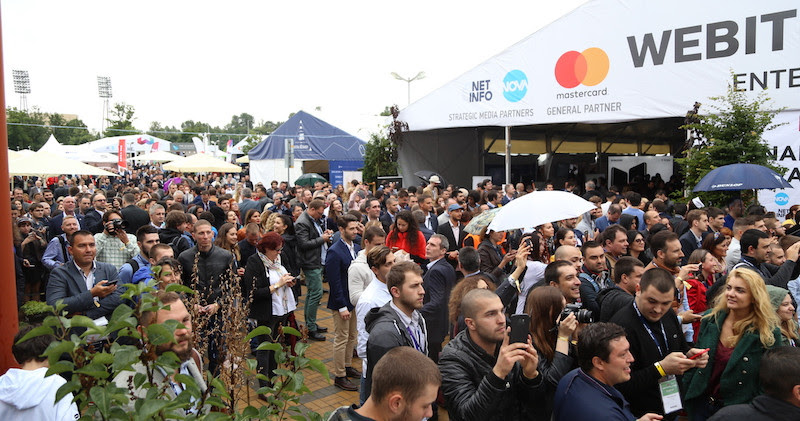
10'000 global leaders from 111 countries visited the Webit City in 2018!
We look forward to welcome many more
- Enterprise Executives - Startups - Investors - Gov & Policy Makers - Academia - Students in 2019!Check coverage by global and local media including:
Entrepreneur.com Forbes.com Al Jazeera Xinghua NovaTV bTV 24 hours TheMayor.eu ... and hundreds more
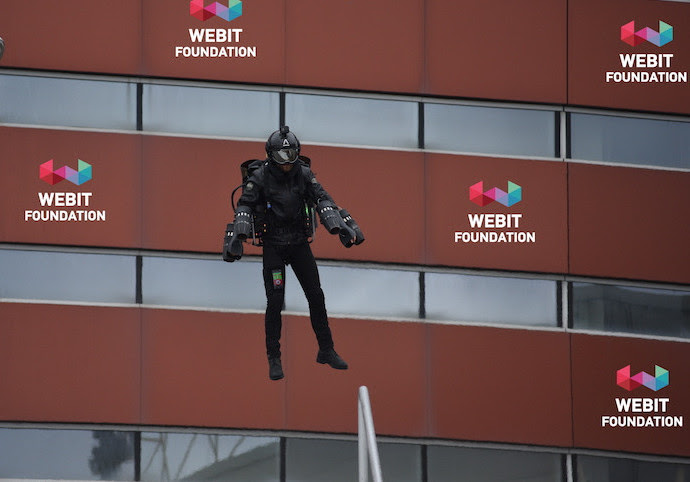

Book your 2019 Super Early Bird Ticket now!
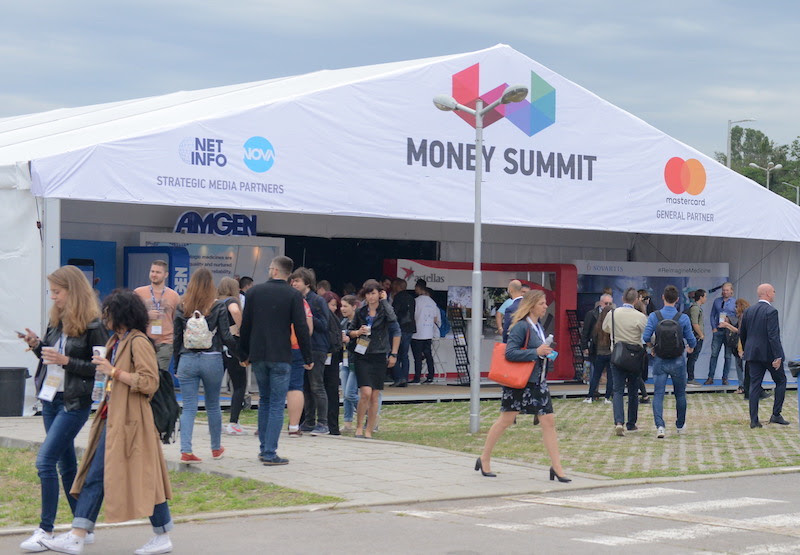


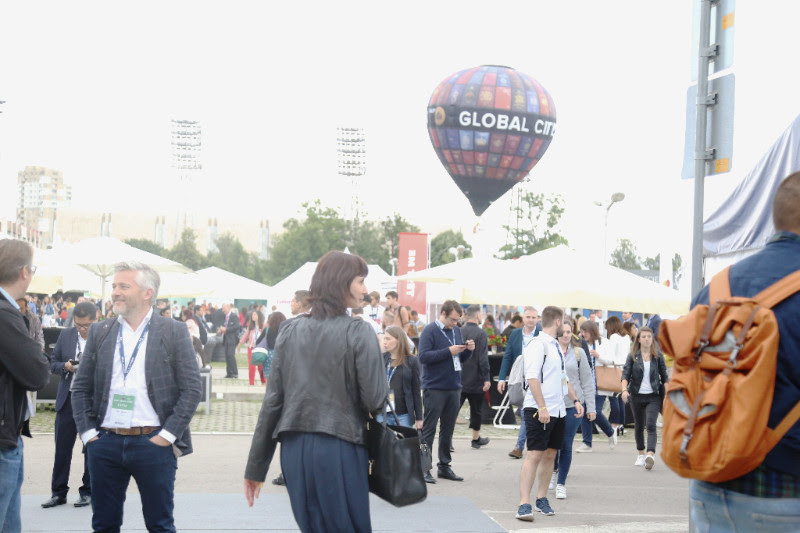
Join the 11th edition of Webit.Festival on 13-15 May, 2019.
Do you want to host a Webit event in your city? We are in open tender procedure for the Global Webit Event Series city hosts for 2020-2022. Contact us at partners@webitcongress.com and we shall send you our RFP.






Education and digital skills – On the mission to inspire
It all starts with education - every profession, every living. Value it.
One of the major topics for the past couple of years is education, due to increase in dialogue at both political and enterprise level regarding the huge hole in educating youngsters using the instruments of the future. While it took 10 years for the online shopping to become the norm, every other day a new norm is born. This and many more examples determine the idea that now is the time to take action. The topic of education was discussed at both the Opening of Webit.Festival Europe 2018 and the Digital Entertainment and Media Summit with distinguished professionals in their respective fields. Having been teaching for 20 years Sharan Burrow, now the Secretary General of the International Trade Union Confederation shares thatFor a long time the business community had a short-term thinking. Jim Green, the VP Government affairs gives an example that many executives were thinking “Who can I hire right now” But the trend is now different and looking towards the future so what Mark Benioff, being the CEO of Salesforce, took on is a one-one-one model - 1% of the equity, 1% of the product and 1% of the employee time goes into volunteerism."...education is a lifelong venture. You have to start with early childhood education and it's probably not withstanding the deficit in investment across all spheres of education and skills. It's the one that has been left out. It's often where inequality starts."
It’s not only companies, however, that invest in future education, it’s organizations like Breakthrough Prize Foundation which tries to make science and mathematics cool again."Technology is part of the solution, it can help, teachers and students, but we shouldn’t kid ourselves that technology is the only answer."
Education is about inspiration and personal example. Kids don’t just learn in front of the computer today, says Esther Wojcicki, they need more interaction. One of the strongest points of the discussion was toned by Jim Green who saw technology as irrelevant with the shortage of teachers, which is a worldwide problem."How come everyone in here can name a World Cup player, but have a lot of trouble naming an alive top scientist?"
One of the newest initiatives of Breakthrough is Junior Challenge where kids from 13 and 18 years old may participate by sending a 3-minute video of their innovation to win the prize of $250,000 post-secondary scholarship; $50,000 for the teacher and $100,000 for the Breakthrough Science Lab + a trip for the winner and their parents to receive the award personally. The challenge is international and we strongly encourage you to take action. You can see the details here."The teachers must be phenomenally passionate of what they do, because they cannot make a living out of teaching."
Missed the 2018 edition of Webit.Festival Europe? Don’t miss the 2019! Get your super early bird 2in1 tickets – 2 for the price of 1 here!



